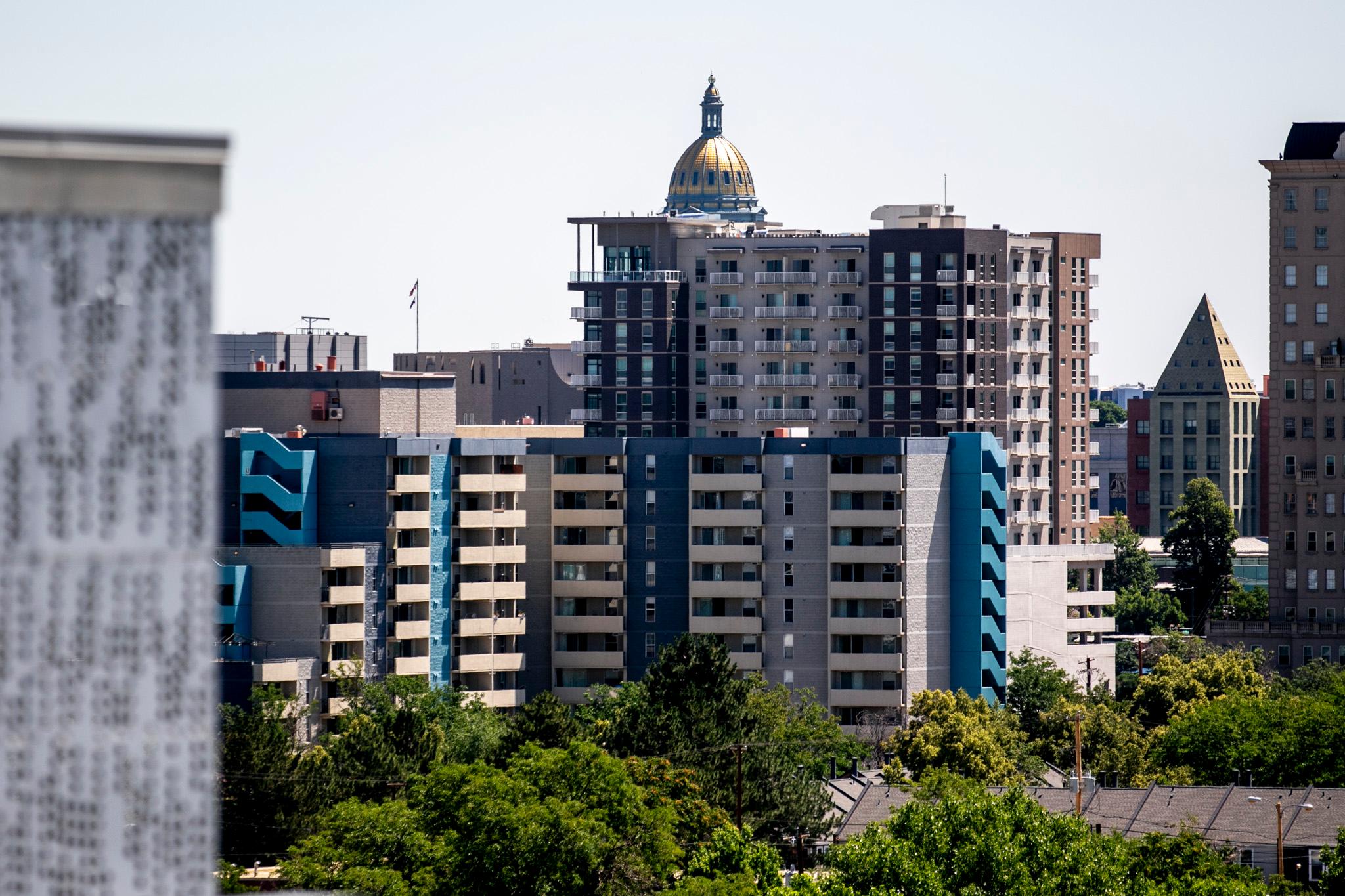
Updated 3:08 p.m. Aug. 13, 2025
Gov. Jared Polis has taken another step in his effort to force cities to enact recently passed state housing laws, or else lose out on state grants in areas like transportation and energy.
In a new executive order signed today, Polis declared that beginning Oct. 6, local governments will not be eligible for $280 million in grants across 34 different funding streams unless they are complying with a range of new housing laws.
“This is Colorado taxpayer money. We want to make sure that it's going to areas that are fundamentally pro housing and are not kind of just rowing upstream and getting less housing,” said the governor.
This latest order provides more details to the executive order Polis signed on May 16 that he would shut off millions in state grants to cities and counties that don’t comply with state housing policies. Under this latest order, the discretionary grants or loans that could be restricted include funds for housing development, land use, transportation, infrastructure, historic preservation, mixed-use incentives, conservation, energy and climate efforts.
Polis has made access to affordable housing and increasing housing options a priority for his second term in office. It’s been a contentious issue, as some cities try to push back against what they see as an infringement on their local prerogatives. Polis noted housing policy has also become a dividing line in local elections.
His administration is being sued by six “home rule” Front Range cities, which argue the state has unconstitutionally usurped their local authority over land use and zoning. The lawsuit also challenges the constitutionality of Polis’ May 16th order to condition state funding on local housing policies. The cities say the order goes “beyond the Governor’s authority” and encroaches on the powers of both the General Assembly and the judiciary to say what the law is.
“We’re seeing a steady erosion of our citizens’ ability to have a voice in the communities in which they live,” said Greenwood Village Mayor George Lantz in a written statement announcing the lawsuit. “The flurry of legislative proposals continually eroding our Home Rule rights applies a top-down, one-size-fits-all approach, removing all of their uniqueness.”
The head of the Colorado Municipal League said the governor isn’t just running roughshod over cities and towns, but also the state legislature, which set out how the funds covered by the executive order were supposed to be distributed.
“Really not one shred of the executive order is consistent with any existing statutory or regulatory authority,” said CML Executive Director Kevin Bommer.
Bommer also argued that the majority of local governments share Polis’ goal of making new housing more affordable and transit friendly, but that the decisions about how to make that happen belong at the local level.
“They may not be doing it fast enough for him, but they're doing it fast enough for them,” he said. “Why is it so hard for a state legislature, for a governor to say, ‘you know what, we support these broader policies, but we want to ensure that residents of municipalities, no matter if they are growing in a way we agree with or not, have the opportunity to weigh in.”
Some opponents of Polis’ housing-compliance strategy have compared his actions to President Trump, attaching strings to funding in order to implement his priorities. But Polis pushed back on that comparison.
“What President Trump is often doing is just sort of making up his own things that are his priorities, but are actually in some cases contrary to the law, which is why the courts have struck it down. So for us, this is really about implementing what the legislature has passed, and I've signed to help create more housing now for Coloradans.”
As he heads into his final legislative session as Governor, Polis said housing policy will continue to be an area of focus because there’s no quick fix or silver bullet. He warned that remaking the housing market is a slow process.
“Coloradans should know…this doesn't change home prices like in three months or six months.”
On Wednesday, Polis said he doesn’t anticipate the grants covered by his order to be significantly impacted by the state’s budget shortfall, but said the final amount of money at stake could end up being a bit lower.
“Especially at a time of economic uncertainty and federal policies negatively impacting State revenue, it is important to ensure that State funds are spent on local projects that lower the cost of living for Coloradans, including housing and transportation costs, and ease the pressure on our climate and natural resources,” states the latest Executive Order.
Polis said his office will list which cities are complying with the various state laws in early October. He categorized local governments into three groups: enthusiastic supporters, middle-ground compilers, and opponents.
“We're being fully transparent about that. And some might still be in the process and just have one more city council meeting to go.”
Polis said language requiring local governments to follow housing laws in these areas will be added to the grant guidelines starting October 6th. He noted the grants will also potentially reward local governments with policies that go further than the state’s.
“Whatever dollar figure we have for grants, we want to direct them and prioritize the areas that are fundamentally building homes that people can afford. I mean, it's kind of simple as that,” he said.
Not all of the laws covered by the order have gone into effect yet and not all of them apply to every community in the state. For instance, a law to allow smaller apartment buildings in Colorado to be built with a single staircase, instead of the two, only applies to a dozen cities with more than 100,000 residents.
Other policies the governor wants to see enforced include:
- requiring local governments to investigate and report on their unmet housing needs regularly.
- ending any policies limiting residential occupancy
- allowing accessory dwelling units
- Putting in place right-of-first refusal policies that would give local governments a better chance of purchasing affordable housing before it converts to market-rate.
- eliminating minimum parking requirements for new construction near transit hubs
- Adopting regional building codes for factory-built structures
- and requiring denser housing development near transit.
“With Colorado expecting to grow by another 1.7 million people by 2050, this executive order helps better align state and local governments around strategic growth, while giving cities and counties flexibility to comply in ways that best suit their community’s needs,” said Matt Frommer, lead for Housing Forward Colorado at the Southwest Energy Efficiency Project (SWEEP) in a statement provided by the Governor’s office. “Our analysis shows that most local governments are taking steps to meet or exceed state laws, largely because they’re proven best practices in planning and land use that closely match local plans and priorities.”
Editor's Note: This story has been updated with comments from the Colorado Municipal League.








